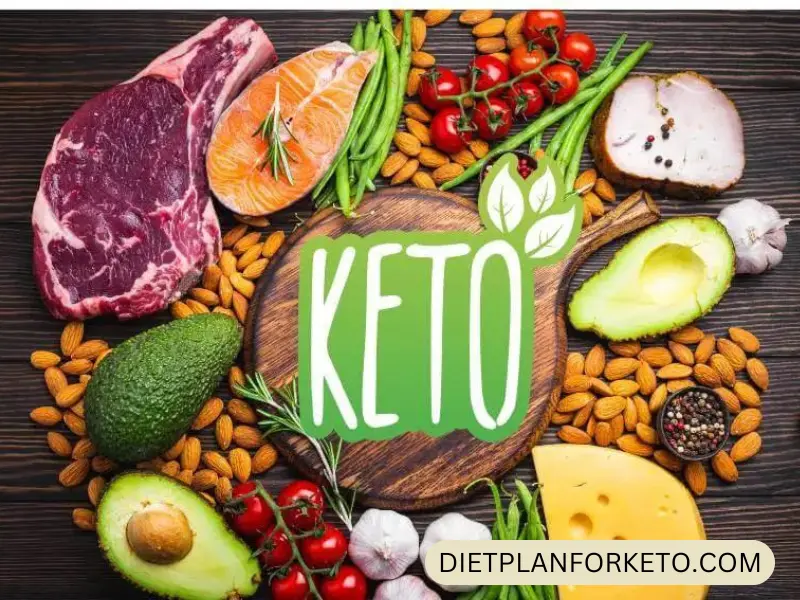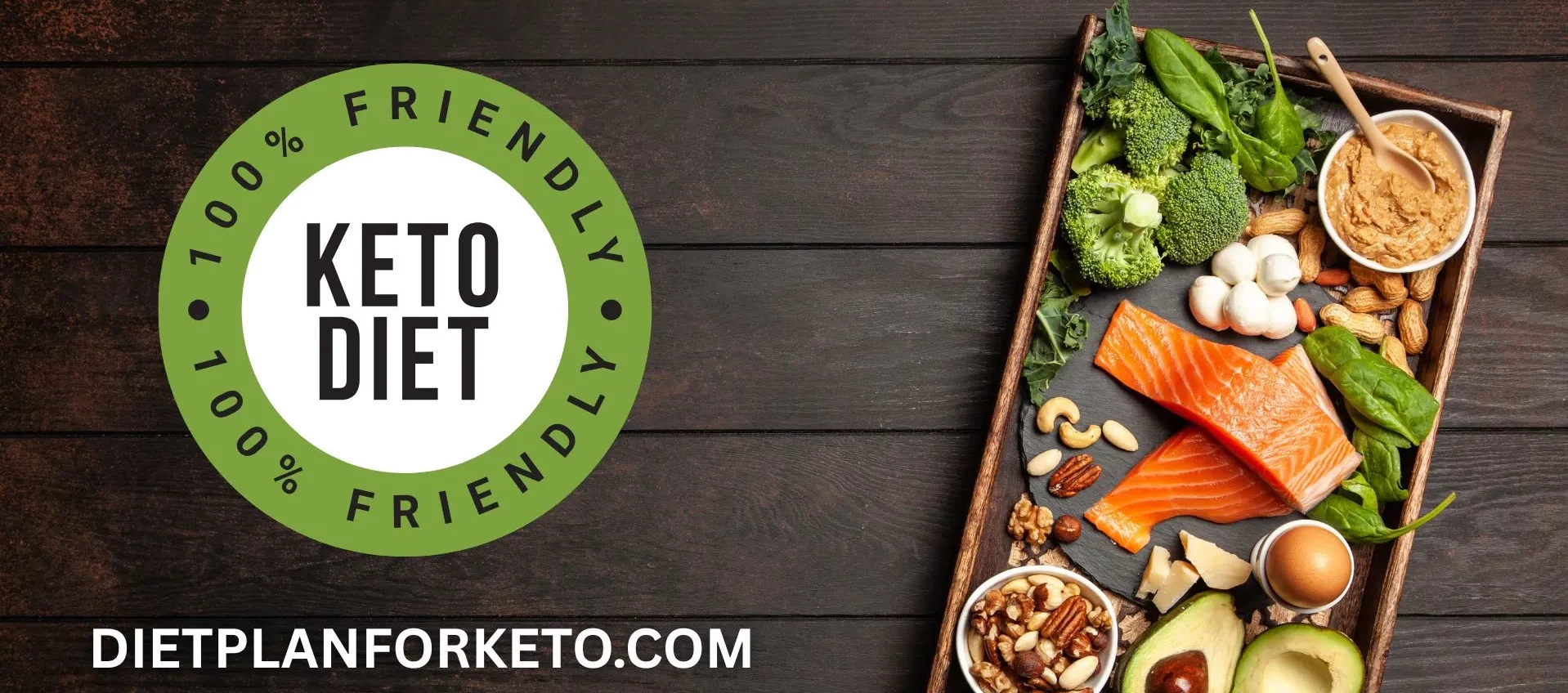Combining the keto and vegan diets creates a unique eating approach that is both plant-based and low-carb, with an emphasis on healthy fats as the primary fuel source.
The vegan keto diet can help with weight management, energy levels, and potentially improve metabolic health, all while remaining aligned with vegan ethics.
This guide covers every aspect of adopting the vegan keto diet, including a complete 7-day meal plan, a list of suitable foods, recipes, and answers to common questions.
Transitioning to a vegan keto diet can be challenging but is entirely achievable with the right planning, awareness, and variety.
What is the Vegan Keto Diet?
The vegan keto diet is a high-fat, low-carb, and moderate-protein diet that is entirely plant-based. By drastically reducing carbohydrate intake, the body shifts from using glucose as its main energy source to using fats, a state known as ketosis.
While animal-based keto diets rely on meats, eggs, and dairy for protein and fats, the vegan keto diet uses plant-based alternatives such as:
- Healthy oils (olive, coconut, avocado)
- Avocados
- Nuts and seeds
- Low-carb vegetables (leafy greens, broccoli, cauliflower)
- Plant-based protein sources (tofu, tempeh, vegan protein powders)
Commonly Asked Questions:
- Can a vegan do a keto diet? Yes, with careful planning, vegans can follow a keto diet using plant-based sources of fat and protein.
- Is it possible to do keto without meat? Yes, the diet can be followed without any animal products by emphasizing healthy plant-based fats and low-carb vegetables.
- What is the keto ratio for vegans? Typically, the vegan keto macro ratio is 70% fat, 20-25% protein, and 5-10% carbs.
- Can vegans eat low-carb? Yes, vegans can consume low-carb by focusing on foods like avocados, nuts, and non-starchy vegetables.
Benefits and Challenges of the Vegan Keto Diet
Benefits:
- Weight Loss: A vegan keto diet can help promote fat loss by reducing appetite and stabilizing blood sugar levels.
- Improved Blood Sugar Control: The low-carb nature of the diet can help stabilize blood sugar levels, which may benefit individuals with diabetes.
- Sustained Energy Levels: Relying on fats for energy can help reduce the spikes and crashes that come with a high-carb diet.
- Enhanced Mental Clarity: Many people report improved focus and mental clarity on a keto diet due to stabilized blood sugar and ketone production.
Challenges:
- Nutrient Deficiencies: Due to restricted food choices, it can be challenging to get enough B12, iron, and omega-3s. Supplements are often necessary.
- Limited Food Choices: The combination of veganism and keto reduces options, making meal planning essential to avoid monotony.
- Keto Flu: During the initial transition, some people experience keto flu, with symptoms such as headaches and fatigue as the body adapts to using fats as fuel.
Complete Vegan Keto Food List
Staying in ketosis while following a vegan diet requires mindful food choices. Here’s a detailed list of vegan keto-friendly foods:
High-Fat, Low-Carb Foods
- Avocado: Great for salads, smoothies, and adding creaminess to dishes.
- Olive, Coconut, and Avocado Oils: These are excellent sources of healthy fats for cooking or drizzling.
- Nuts and Seeds: Almonds, walnuts, chia seeds, and flaxseeds provide fats and fiber.
- Coconut Cream: Adds creaminess to recipes with a rich fat content.
- Nut Butters: Almond butter, tahini, and sunflower seed butter make excellent high-fat toppings.
Low-Carb Vegetables
- Leafy Greens: Spinach, kale, arugula, and Swiss chard are nutrient-dense and low in carbs.
- Cruciferous Vegetables: Cauliflower, broccoli, and Brussels sprouts add bulk without adding too many carbs.
- Zucchini and Bell Peppers: Great for stir-fries and as replacements for high-carb foods like pasta.
Protein Sources
- Tofu and Tempeh: These soy-based proteins are versatile and low in carbs.
- Vegan Protein Powders: Pea protein, hemp protein, and pumpkin seed protein can help meet protein requirements.
- Nuts and Seeds: A reliable source of both fat and protein on a vegan keto diet.
Foods to Avoid
- High-Carb Vegetables: Avoid starchy vegetables like potatoes, carrots, and corn.
- Grains and Legumes: Rice, oats, beans, and lentils are high in carbs and generally avoided on keto.
- Sugars: Stay away from maple syrup, agave, honey, and other sweeteners high in carbs.
Vegan Keto Recipes
Recipe #1: Creamy Avocado Spinach Salad
- Ingredients:
- 1 avocado, sliced
- 2 cups fresh spinach
- 2 tbsp hemp seeds
- 1 tbsp olive oil
- 1 tbsp lemon juice
- Salt and pepper to taste
- Instructions:
- In a bowl, combine the spinach, avocado slices, and hemp seeds.
- Drizzle with olive oil and lemon juice.
- Season with salt and pepper.
- Toss gently to combine.
- Carbs: ~5g net carbs per serving
Recipe #2: Coconut-Cauliflower Stir Fry
- Ingredients:
- 1 small head of cauliflower, riced
- 1/2 cup coconut cream
- 1 tbsp coconut oil
- 1 bell pepper, diced
- 1/2 cup broccoli florets
- Salt, pepper, and spices to taste
- Instructions:
- Heat the coconut oil in a pan over medium heat.
- Add the riced cauliflower, bell pepper, and broccoli. Sauté until tender.
- Pour in the coconut cream and season with salt, pepper, and spices.
- Stir well and cook for another 3-5 minutes.
- Carbs: ~7g net carbs per serving
Recipe #3: Almond Butter Chia Seed Pudding
- Ingredients:
- 1/4 cup chia seeds
- 1 cup almond milk (unsweetened)
- 2 tbsp almond butter
- 1 tsp vanilla extract
- Optional: Stevia or monk fruit for sweetness
- Instructions:
- In a bowl, mix almond milk, chia seeds, almond butter, and vanilla.
- Stir well, cover, and refrigerate for at least 4 hours.
- Sweeten to taste, if desired, before serving.
- Carbs: ~4g net carbs per serving

7-Day Vegan Keto Meal Plan
This 7-day meal plan provides breakfast, lunch, and dinner options for each day, focusing on keeping carbs low while maximizing fats and protein.
Day 1
- Breakfast: Almond butter chia seed pudding
- Lunch: Avocado spinach salad with hemp seeds
- Dinner: Coconut-cauliflower stir fry
Day 2
- Breakfast: Vegan protein shake with almond milk, spinach, and chia seeds
- Lunch: Zucchini noodles with avocado pesto
- Dinner: Cauliflower and coconut curry
Day 3
- Breakfast: Keto smoothie with coconut milk, spinach, and hemp seeds
- Lunch: Tofu and avocado salad with olive oil dressing
- Dinner: Spaghetti squash with marinara and vegan cheese
Day 4
- Breakfast: Avocado with a handful of almonds and coconut flakes
- Lunch: Kale and tempeh salad with tahini dressing
- Dinner: Stir-fried tofu with broccoli and coconut oil
Day 5
- Breakfast: Coconut yogurt with chia seeds and a few raspberries
- Lunch: Spinach, cucumber, and hemp seed salad
- Dinner: Vegan mushroom stroganoff with cauliflower rice
Day 6
- Breakfast: Tofu scramble with spinach and mushrooms
- Lunch: Stuffed bell peppers with cauliflower rice and vegan cheese
- Dinner: Coconut curry with zucchini noodles
Day 7
- Breakfast: Almond butter chia seed pudding
- Lunch: Broccoli and avocado salad with hemp seeds
- Dinner: Cauliflower mash with sautéed spinach and tempeh
FAQs on the Vegan Keto Diet
Can a vegan do keto?
Yes, by relying on plant-based fats and proteins, vegans can successfully maintain a keto diet.
Is it possible to do keto without meat?
Absolutely, meat-free keto is achievable with vegan sources of fat and protein like nuts, avocados, and low-carb vegetables.
What is the keto ratio for vegans?
A typical ratio is 70% fats, 20-25% protein, and 5-10% carbs.
Can vegans eat low-carb?
Yes, plenty of vegan foods, such as leafy greens and avocados, are low in carbs and suitable for keto.
Vegan Keto Before and After: What to Expect
The initial phase may include mild fatigue or cravings, but most experience weight loss, increased energy, and improved focus after the adjustment period.
Tips for Success on the Vegan Keto Diet
- Plan Ahead: Meal prep ensures you have ready-to-eat keto-friendly meals.
- Stay Hydrated: Drink plenty of water to avoid dehydration and keto flu symptoms.
- Supplement Carefully: Consider B12, omega-3, and iron supplements to fill nutritional gaps.
- Track Macros: Use an app to track fat, protein, and carb intake.
- Get Creative: Experiment with spices, herbs, and new recipes to keep your diet exciting and varied.
- Listen to Your Body: Adjust food choices and portion sizes based on how you feel and your individual needs.
Conclusion
The vegan keto diet can be a rewarding way to experience the benefits of ketosis while following a plant-based lifestyle.
With careful planning, meal variety, and mindful nutrition, this diet can support your goals for health, weight management, and sustainable energy.
Embrace the learning process, experiment with recipes, and remember that consistency is key.
By making informed choices, you can enjoy the benefits of a vegan keto diet while maintaining a balanced and enjoyable eating plan.
